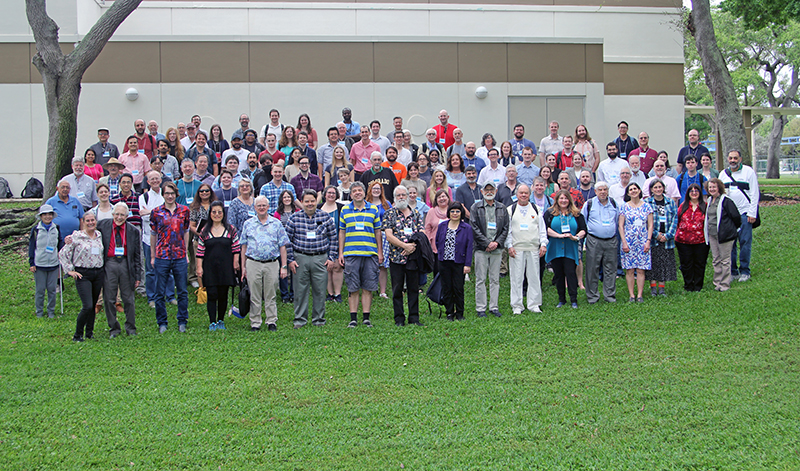Department of Mathematics and Statistics Longstanding Host of Major International Math Conferences
Wednesday, Apr 24, 2024
The Schmidt College of Science’s Department of Mathematics and Statistics has a long history of hosting three major international math conferences every year. Held every spring semester, the conferences aim to connect the global math community through a range of disciplines, from the growing field of artificial intelligence (AI) to combinatorics, graph theory, and computing.
“These conferences provide a venue for faculty and students, along with government and industry leaders from all over the world to come together and discuss cutting-edge research,” stated Maria Provost, Ed.D., coordinator, Academic Support Services, Department of Mathematics and Statistics. “The global math community is widely aware of the existence of these conferences, and they are known to be some of the world’s most important meetings in the disciplines they support. I am so proud to have the opportunity to facilitate the logistics of these significant international events.”
Most recently, the department hosted the 55th Southeastern International Conference on Combinatorics, Graph Theory, and Computing (SEICCGTC) from March 4 to 8. While the conference is one of Florida Atlantic’s longest continuous running events, it is worth noting that SEICCGTC Conference Director and Professor of Mathematics, Frederick Hoffman, Ph.D., has been leading the event since its first meeting at Florida Atlantic University in 1972. Hoffman is among the longest-standing current faculty members at Florida Atlantic.
“A valuable part of the conference is the opportunity for attendees to converse about the methods participants employ in their professional work in business, industry, and government,” stated Hoffman. “This conference continues in its historic aims to promote better understanding of the roles of modern applied mathematics, combinatorics and computer science, demonstrate the contribution of each discipline to the others, and decrease gaps between the fields.
This year, SEICCGTC featured a diverse lineup of speakers on a broad range of topics, including results in enumerative combinatorics, combinatorial designs, AI and computability, graph coloring, and algorithmic graph theory, as well as a career panel comprised of recent Florida Atlantic Ph.D. students. Approximately 180 people attended the event, including high school, undergraduate and graduate students, current and retired faculty, as well as professionals in the field, and almost 120 contributed papers were submitted.
Launched in 1990, Hoffman was one of three founding members of the International Symposium on Artificial Intelligence and Mathematics (ISAIM). Held every other January in Fort Lauderdale, the symposium is a biennial meeting that fosters interactions between mathematics, theoretical computer science, and AI. Traditionally, ISAIM attracts participants from a variety of disciplines, thereby providing a unique forum for scientific exchange.
The three-day symposium includes invited speakers, presentations of technical papers, and special topic sessions. This year, the highlight of the symposium was a three-hour interview of Judea Pearl, the world’s leader in the use of statistics in AI, by Stephen Wolfram, founder and CEO of Wolfram Research. Wolfram is a British-American computer scientist, physicist, and businessman who is known for his work in computer science, mathematics, and theoretical physics. Since 1990, conference speakers have included winners of the Nobel Prize and top awards in mathematics, computer science, and AI.
The Schmidt College of Science’s Master of Science in Teaching Mathematics program, together with Florida Atlantic’s Stiles-Nicholson STEM Teacher Academy (SNSTA), annually hosts the Florida GeoGebra Conference. Every February, STEM educators who seek to enhance their teaching of mathematics through the innovative use of GeoGebra gather for an interactive workshop. GeoGebra, which had much of its early development begin in the college’s Mathematics Department, is a dynamic mathematics software that integrates geometry, algebra, spreadsheets, graphing, statistics, and calculus. This year, attendees explored how to leverage GeoGebra to create engaging and effective learning experiences in STEM classrooms.
GeoGebra is an open-source and free software for learning and teaching mathematics, used from grade schools through colleges and universities. The company's award-winning software serves as a tool for researchers and educators around the world to introduce innovation in teaching at all levels of education.